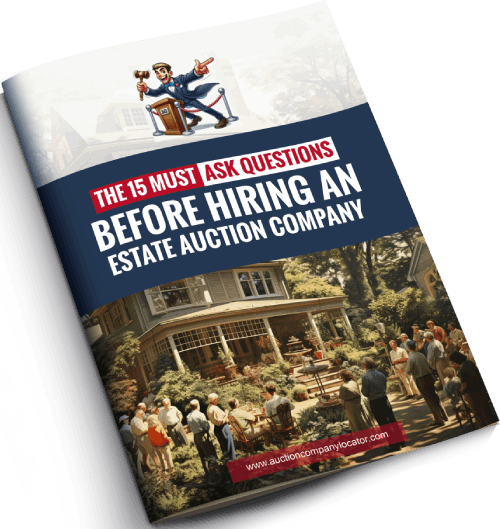
Welcome to our Land Auction FAQ page, where we answer the most common questions we get about selling land at auction.
A land auction is a method of selling land through competitive bidding, where the property is sold to the highest bidder.
Auctions can create urgency, bring in qualified buyers, and often result in a quicker sale at a competitive market price.
All types of land can be sold at auction, including agricultural, residential, commercial, recreational, timberland, and undeveloped land.
The land is marketed, bidders are registered, and the auction is conducted either in person, online, or in a hybrid format. The highest bid above any reserve price wins the property.
From the initial consultation to the auction date, it typically takes 30 to 90 days, depending on marketing needs and scheduling.
Yes, you can set a reserve price to ensure the land does not sell for less than a predetermined amount.
Auctions create a sense of urgency, allow for competitive bidding, and often lead to a quicker sale at market value without prolonged negotiations.
Auction companies use online listings, social media, email campaigns, print ads, and direct marketing to attract potential buyers.
Sellers typically pay a commission based on the sale price, as well as marketing fees. Some auction companies also charge a buyer’s premium.
A buyer’s premium is a percentage of the final bid added to the purchase price, which is paid by the buyer and helps cover the auction company’s costs.

Ready to make an informed decision on your next auction? Download our essential “15 Must Ask Questions” guide for FREE! These quick guides arm you with the key questions to ask before hiring an estate, business liquidation, or land auction company. Simply enter your email to access expert tips that could save you time, money, and ensure you’re partnering with the best. Don’t leave your next auction to chance—download your guide now!
Unsold land can be relisted at a future auction, sold privately, or marketed through traditional real estate channels.
Buyers can include investors, farmers, developers, homebuilders, or individuals looking for recreational or residential land.
Land in demand, including agricultural, commercial, or development-ready parcels, typically does well at auction. Consult with an auctioneer to determine suitability.
Make sure the land is easily accessible for viewings and inspections, and ensure all necessary legal documents (such as titles and surveys) are in order.
Sellers must ensure the land title is clear, have a current survey if necessary, and disclose any environmental issues, zoning restrictions, or easements.
Once the auction is completed, the winning bidder signs a purchase agreement, makes a deposit, and typically has 30-45 days to close the sale.
Auction agreements usually include a non-refundable deposit to protect the seller if the buyer fails to close. The land can then be relisted or sold to the next highest bidder.
Many land auctions offer online participation, allowing bidders to place bids in real-time from anywhere with internet access.
By marketing the land extensively and ensuring that only pre-qualified bidders participate, auction companies aim to create a competitive environment.
Once the sale closes, which usually occurs within 30-45 days of the auction, sellers typically receive payment shortly after the transaction is finalized.
Fill out the form below, and we will send your copy of:
“15 Must Ask Questions Guide” for your auction type.